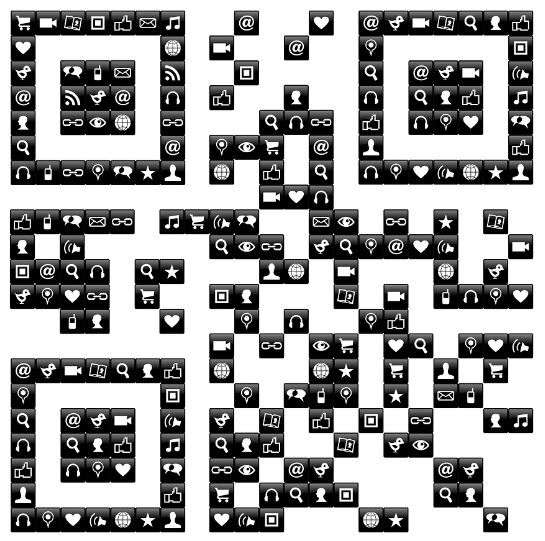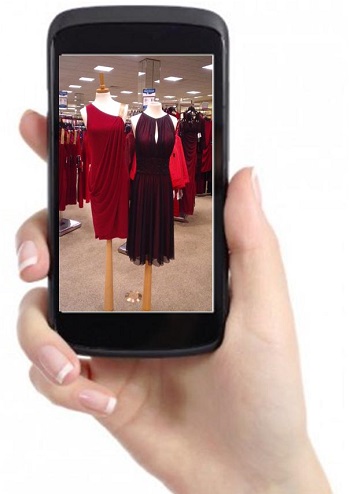QR codes are having an impact among South African consumers
QR codes have had a major impact on mobile commerce in South Africa. These codes have become a very prominent tool in the mobile commerce space due to how easy they are to use and produce. The codes can direct consumers to a wide variety of digital information, but can also be used to initiate a mobile transaction, making them ideal tools to merchants that want to sell products to mobile consumers quickly.
Research shows that consumers are using codes for a variety of reasons
World Wide Worx, a technology research firm, has released analysis that shows that more than 2 million people in South Africa are using QR codes via mobile applications. These codes are being used for a wide range of reasons, such as adding a person’s contact information to a messaging app. They are also being used to sell products to mobile consumers. When scanned, these codes can provide information on particular products, while also giving consumers the option to purchase the products that they are interested in.
Young consumers show the most interest in QR codes
 Notably, QR codes are most popular among those between the ages of 25 and 34. These consumers are more comfortable with the concept of mobile commerce and believe that these codes are effective tools to engage in this sector. The codes are also praised for their social aspects, as they have become quite popular among social media users in South Africa. The codes can be programmed to store contact details and other such information.
Notably, QR codes are most popular among those between the ages of 25 and 34. These consumers are more comfortable with the concept of mobile commerce and believe that these codes are effective tools to engage in this sector. The codes are also praised for their social aspects, as they have become quite popular among social media users in South Africa. The codes can be programmed to store contact details and other such information.
QR codes help power growth of mobile commerce
Consumers in South Africa have shown a great deal of interest in mobile commerce. New payment platforms have managed to win the support of these consumers and retailers are beginning to take notice. As such, merchants are looking for ways to embrace the concept of mobile commerce and some have begun turning to QR codes in order to do so. Some had predicted that QR codes would die off in the coming years, but mobile commerce may have saved these codes for the time being.
Europeans are using their smartphones to buy things and are scooping up deals on clothes.
The results of a study conducted by Ipsos on behalf of ING have been announced and they have shown that consumers in Europe are taking advantage of mobile shopping as well over half of them (58 percent) use their devices to make purchases.
The countries that shop over mobile devices the most in Europe were found to be Turkey and Poland.
At the other end of the scale, Belgium and the Netherlands were the countries in which consumers were least likely to take part in mobile shopping. That said, throughout all of the countries, it was clothing that was the most popular item to purchase. This is a surprising fact, considering that this is the type of product that consumers will usually want to try on before they make a purchase. That said, more than one third (35 percent) of people in Europe who have smartphones and tablets had used their mobile devices to purchase an article of clothing.
The second most common type of item purchased over mobile shopping was electronics (32 percent).
 The third most common mobile commerce category was gaming products, which were purchased by 19 percent of device owning Europeans. Other shopping categories included groceries (17 percent), music (16 percent) and travel (16 percent). All of this data was released in the ING International Survey on Mobile Banking, which was designed to take a closer look at the m-commerce habits of over 10,000 mobile device using consumers throughout Europe.
The third most common mobile commerce category was gaming products, which were purchased by 19 percent of device owning Europeans. Other shopping categories included groceries (17 percent), music (16 percent) and travel (16 percent). All of this data was released in the ING International Survey on Mobile Banking, which was designed to take a closer look at the m-commerce habits of over 10,000 mobile device using consumers throughout Europe.
Among the drivers that have been credited with the popularity of the use of smartphone and tablet commerce has been the simplicity of “one click” ordering. The study showed that 55 percent of mobile shoppers had a greater inclination to make a purchase on their devices when the store allowed them to save their payment information so that they would not be required to enter it the next time they made a purchase.
That said, the draw of these types of convenience have suggested that mobile shopping may be causing some consumers to miss out on certain cheaper deals because they spend less time looking around so that they will be able to check out more quickly.
 Notably, QR codes are most popular among those between the ages of 25 and 34. These consumers are more comfortable with the concept of mobile commerce and believe that these codes are effective tools to engage in this sector. The codes are also praised for their social aspects, as they have become quite popular among social media users in South Africa. The codes can be programmed to store contact details and other such information.
Notably, QR codes are most popular among those between the ages of 25 and 34. These consumers are more comfortable with the concept of mobile commerce and believe that these codes are effective tools to engage in this sector. The codes are also praised for their social aspects, as they have become quite popular among social media users in South Africa. The codes can be programmed to store contact details and other such information.
 The third most common mobile commerce category was gaming products, which were purchased by 19 percent of device owning Europeans. Other shopping categories included groceries (17 percent), music (16 percent) and travel (16 percent). All of this data was released in the ING International Survey on Mobile Banking, which was designed to take a closer look at the m-commerce habits of over 10,000 mobile device using consumers throughout Europe.
The third most common mobile commerce category was gaming products, which were purchased by 19 percent of device owning Europeans. Other shopping categories included groceries (17 percent), music (16 percent) and travel (16 percent). All of this data was released in the ING International Survey on Mobile Banking, which was designed to take a closer look at the m-commerce habits of over 10,000 mobile device using consumers throughout Europe.